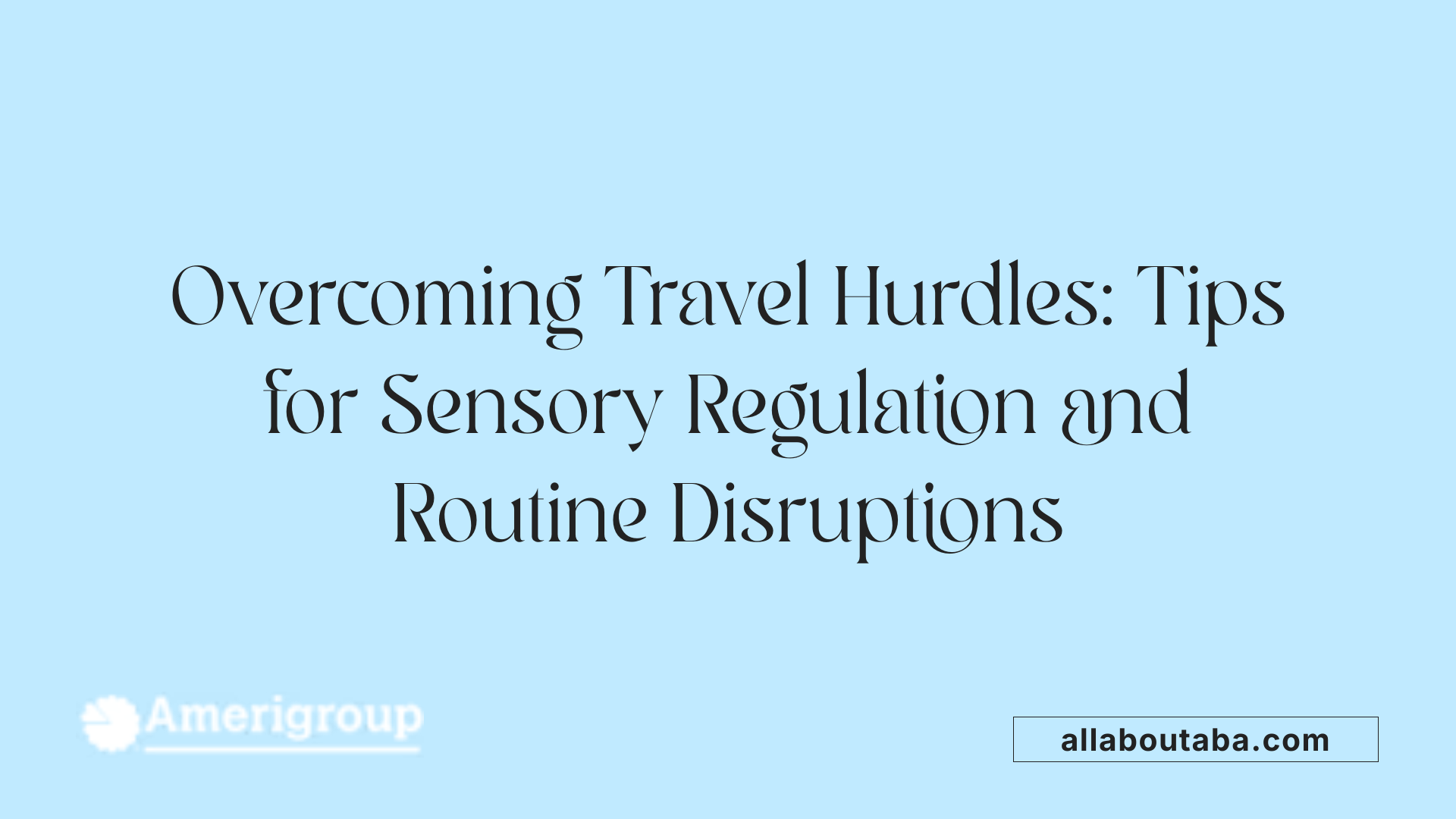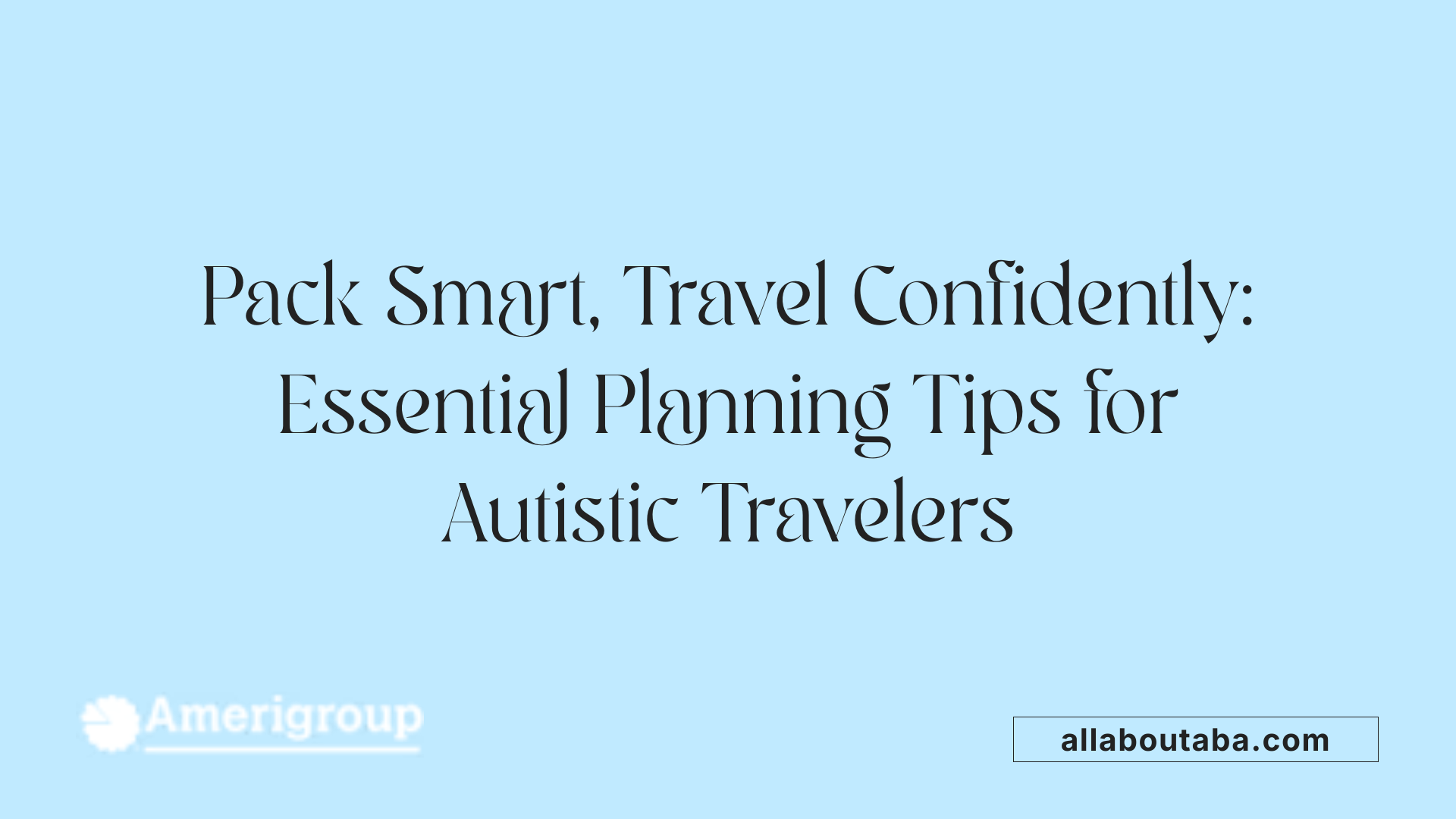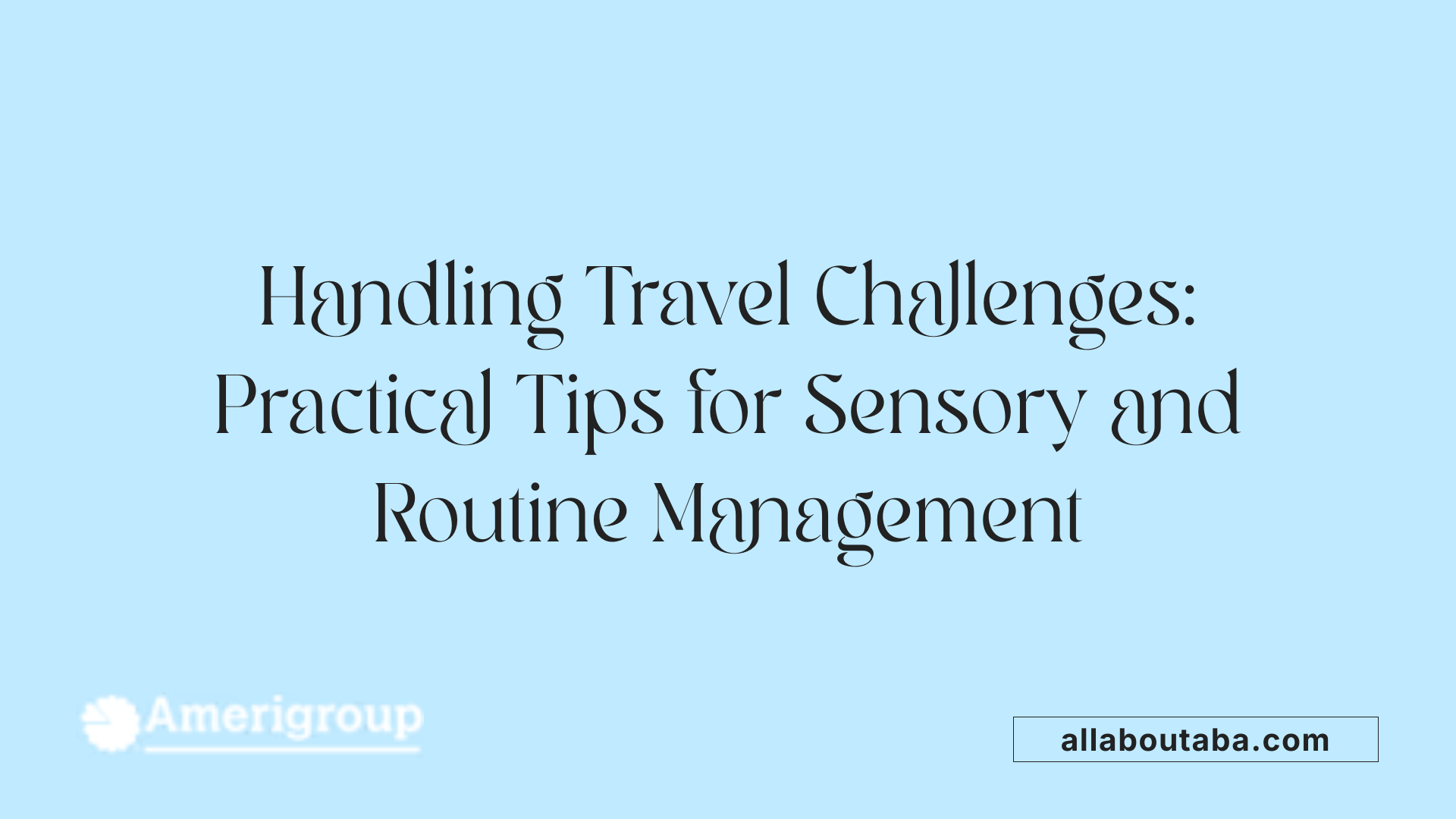Unlocking Independence Through Strategic Travel Preparation
Traveling independently can be a transformative experience for autistic adults, fostering confidence, self-reliance, and personal growth. However, it requires thoughtful preparation, understanding of individual needs, and strategic planning. This article offers comprehensive guidance on how to support autistic adults in becoming confident, independent travelers by exploring effective strategies, accommodations, safety considerations, and support systems tailored to their unique preferences and sensitivities.
Understanding the Challenges of Travel for Autistic Adults
 Travel often disrupts the familiar routines of autistic individuals, leading to discomfort and heightened anxiety. Changes in daily patterns, unfamiliar environments, and the unpredictability of new situations can be stressful. Sensory overload is a common issue, with intrusions such as loud noises, crowds, and bright lights overwhelming sensory systems that may already be heightened.
Travel often disrupts the familiar routines of autistic individuals, leading to discomfort and heightened anxiety. Changes in daily patterns, unfamiliar environments, and the unpredictability of new situations can be stressful. Sensory overload is a common issue, with intrusions such as loud noises, crowds, and bright lights overwhelming sensory systems that may already be heightened.
Many autistic travelers encounter challenges like noisy airports, bustling public transport, and crowded tourist spots, all of which can trigger anxiety or sensory distress. The unpredictability of delays, cancellations, or unplanned disruptions further complicates travel planning.
Despite these hurdles, many autistic adults are capable of traveling independently. With thorough preparation, they can mitigate many difficulties associated with travel.
Can autistic people travel independently?
Yes, many autistic people travel independently, but they often face challenges such as sensory overload, unpredictability, and complex navigation on public transport. Planning ahead by researching routes, allowing extra time, and bringing sensory aids can help manage these difficulties. Service options like free Passenger Assist for train journeys and regional concessionary passes can provide additional support and affordability. Larger stations often have dedicated facilities and staff to assist autistic travelers, and strategies like using headphones, stimming toys, or wearing identification can also reduce stress. Overall, with proper preparation and support, autistic individuals can successfully navigate public transport and enjoy independent travel.
The Significance of Preparation and Planning
 Effective travel for autistic adults hinges on well-organized preparation and meticulous planning. Systematic packing, such as using a dedicated drawer for essentials, helps streamline the process and reduces last-minute stress. Packing a 'go bag' with toiletries, medications, sensory tools, and comfort items ensures readiness and comfort during the journey.
Effective travel for autistic adults hinges on well-organized preparation and meticulous planning. Systematic packing, such as using a dedicated drawer for essentials, helps streamline the process and reduces last-minute stress. Packing a 'go bag' with toiletries, medications, sensory tools, and comfort items ensures readiness and comfort during the journey.
Booking accommodations in advance and confirming all reservations can prevent unwelcome surprises upon arrival. Making transportation arrangements ahead of time, understanding local customs, and familiarizing oneself with the currency exchange are critical steps for smoother travel experiences. These efforts foster independence and confidence.
Strategies to help autistic adults prepare for independent travel include thorough planning and familiarity-building. Visiting airports beforehand through programs like MSP's Navigating MSP or watching destination airport videos online can familiarize travelers with unfamiliar environments. Packing sensory tools such as noise-canceling headphones, fidget toys, and familiar foods helps manage sensory sensitivities. Creating detailed itineraries, checklists, and practicing routines can cut down on anxiety caused by unpredictability.
Informing airlines and airports about specific needs using visual cues or assistance programs, like the Hidden Disabilities Sunflower scheme, enhances support. Engaging in sensory and social exposure activities prior to travel—such as visiting busy places or practicing routine changes gradually—develops coping skills. Utilizing autism-friendly accommodations and resources, including hotel services or assistance programs at airports and attractions, further increases safety and adds to a positive travel experience.
Managing Travel Complexities and Sensory Considerations

What are effective tips for managing travel challenges faced by autistic adults?
Travel can be overwhelming for autistic adults due to sensory sensitivities, routine disruptions, and unfamiliar environments. To mitigate these challenges, thorough preparation is essential. This includes familiarizing oneself with the destination through research and practice visits, which can help reduce anxiety about new settings.
Packing comfort items such as noise-cancelling headphones, stim toys, or familiar snacks helps provide reassurance during unpredictable moments. It’s also advisable to request accommodations in advance, like quiet spaces, sensory-friendly rooms, or additional assistance from staff at airports, hotels, and transportation services.
Maintaining some routines and structure during travel aids in creating a sense of familiarity and control. Using visual schedules, social stories, or checklists to clarify the journey process can help autistic adults understand what to expect and reduce stress.
Gradual exposure to new environments through mini-trips or simulated experiences builds confidence and independence. Delegating tasks or seeking support from a travel companion or support worker can further reduce the burden and promote smoother travel experiences.
Lastly, equipping oneself with clear information, support tools, and a flexible mindset makes it easier to handle unexpected situations. Overall, individualized planning, proactive communication, and embracing adaptation are vital to managing travel complexities effectively.
Support Systems and Assistive Services for Independent Travel
What accommodations and supports can facilitate independent travel for autistic adults?
Travel can be challenging for autistic adults due to sensory sensitivities, routine disruptions, and unfamiliar environments. However, numerous support systems and services exist to promote greater independence and comfort.
One essential element is advance planning. Using visual schedules, social stories, and practicing travel scenarios can help prepare individuals for what to expect, reducing anxiety. Sensory-friendly accommodations, such as noise-canceling headphones, fidget toys, or familiar comfort items, contribute to a more manageable environment.
Airports and transportation services also offer specialized support. Passenger Assist programs and disability access services provide trained staff who can assist with navigating security procedures, boarding, and other travel logistics. These programs enable autistic travelers to move through airports and transit hubs more comfortably.
Travel agencies dedicated to autism-friendly services, such as Autism on the Seas, offer tailored trips with trained personnel, accessible accommodations, and support throughout the journey. These agencies often facilitate the booking process and ensure the availability of accommodations suited to sensory needs.
Technology further enhances independence. Mobile apps for real-time assistance, GPS tracking devices, and wearable ID tags help communicate needs, ensure safety, and enable quick assistance when necessary. Many apps also provide auditory or visual cues to guide travelers through unfamiliar environments.
Overall, combining thoughtful preparation, specialized programs, and technological supports allows autistic adults to travel more independently with confidence. These services help reduce stress, promote safety, and foster a sense of accomplishment in navigating the world on their own.
Building Skills for Independence Through Travel Training
How can learning public transportation use, including routes and schedules, help autistic travelers develop independence?
Mastering public transportation is essential for autistic adults seeking independence. Training involves understanding how to read schedules, recognize routes, and identify stops. Practice trips using buses, trains, or subways help build familiarity and confidence.
These skills enable travelers to navigate their environment more autonomously, reducing dependence on others. Being comfortable with public transport also opens doors to new destinations and routines.
What routines and time management skills are important for travel preparation?
Creating consistent routines, such as packing a 'go bag,' reviewing travel documents, and arriving early, can ease anxiety. Using visual calendars or timers helps manage time effectively.
Developing these routines ensures that every step has a predictable pattern, minimizing surprises and stress. Prioritizing tasks like setting alarms or preparing meals in advance supports smooth travel experiences.
How do visual supports and social stories aid in preparation?
Visual schedules, checklists, and social stories are powerful tools for preparing autistic travelers. These aids outline steps of security procedures, boarding, and other travel segments.
They reduce uncertainty by providing clear expectations, making complex processes easier to understand. Reviewing these materials before travel can calm nerves and improve compliance.
Why is practicing trips and gradually increasing exposure beneficial?
Starting with short, low-stakes trips helps individuals build tolerance and confidence. Repeated practice familiarizes them with the environment, reduces fear, and prepares them for longer journeys.
Gradual exposure allows for adjustment of sensory sensitivities and routines. Over time, this approach enhances independence and resilience, enabling travelers to handle unexpected changes more comfortably.
Overall, combining technical skills with personalized supports and incremental experience helps autistic adults become more confident and self-reliant in travel. Access to sensory-friendly transportation options and clear communication further supports this growth toward independence.
Post-Travel Recovery and Self-Care
When traveling, autistic adults often experience sensory overload and emotional exhaustion once the trip concludes. Recognizing the signs of overload, such as irritability, fatigue, or heightened sensitivity, is crucial for timely support and recovery.
After returning home, it’s important to prioritize rest and decompress from the travel experience. Creating a calm, familiar environment can help reset sensory systems, reducing the risk of meltdowns or shutdowns.
Using familiar items like favorite blankets, stim toys, or soothing music can facilitate emotional regulation during the recovery phase. These items provide comfort and reinforce a sense of safety, aiding in transition back to everyday routines.
An organized approach to post-trip self-care involves establishing a gradual return to regular routines, avoiding overstimulation, and ensuring sufficient sleep. This helps balance sensory inputs and emotional states.
Being alert to signs of overload—such as increased anxiety or withdrawal—is essential. If these symptoms appear, seeking support from trusted friends, family, or mental health professionals can help manage the lingering effects of travel.
Overall, effective recovery strategies emphasize patience, familiarity, and proactive management to ensure that the benefits of travel—such as increased independence and confidence—are consolidated, and the individual’s well-being is maintained.
Fostering Confidence and Ensuring Safety in Independent Travel
Preparing autistic adults for independent travel involves a multifaceted approach that combines thorough planning, personalized supports, skill development, and environmental adaptations. By understanding the unique challenges faced—such as sensory sensitivities and routine disruptions—and employing targeted strategies, caregivers and travelers can significantly reduce anxiety and enhance confidence. Access to specialized services, familiarization visits, visual supports, and safety plans foster a sense of security. Building independence through travel training not only equips individuals with essential life skills but also promotes their autonomy and self-reliance. Ultimately, a well-prepared journey opens the door to enriching experiences that promote personal growth, social inclusion, and a deeper sense of confidence in navigating the world independently.
References
- The Complete Autistic Travel Guide - Autism Spectrum News
- A Newbie's Guide to Traveling While Autistic - Rooted in Rights
- Preparing for changes to transportation as an adult on the spectrum
- How Travel Helped Me Become More Independent - ibcces
- Autism travels - Autism Speaks
- Making Traveling Fun, Easy and Safe | The Arc's Autism Now Center
- Building Independent Living Skills For Young Adults on the Autism ...
- Autistic While Traveling: Haley Moss' Top Tips for a Successful Trip







